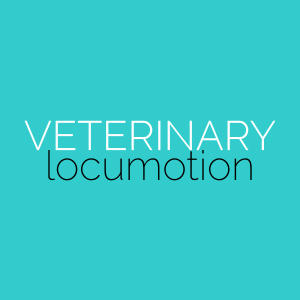Whether you’re a fresh-out-of-university graduate Vet, an experienced Emergency Veterinary Surgeon with decades of expertise, or a Vet Nurse or Technician with oodles of practical knowledge, when it comes time to make your next career step, your Resume must include these 6 critical elements. Just like any form of advertising, you only have about three seconds to engage your audience and get them to explore further, so your Resume has a lot of work to do in a very short time. Including these 6 key components will help you clarify your approach, ensure that you focus on your key skills and accomplishments, and craft a CV that will make sure you stand out from the crowd…
Veterinary Work-Life Balance – Making The Myth A Reality
Veterinary professionals are naturally type-A empathetic individuals, aspiring to make life better for both pets and pet parents by providing excellent care. So yes, achieving a work-life balance that allows you to thrive is every veterinary professional’s goal, but many don’t notice that things are off-kilter until it is nearly too late. It’s time for an Intervention. We approached veterinarians, veterinary nurses, veterinary technicians, and hospital managers from our global community for their advice and their practical, tactical tips to get you started on re-establishing your own work-life balance. Here are their 7 top tips…
6 Building Blocks for creating a Great Practice Culture
6 Building Blocks for Creating a Great Practice Culture Whether building a new practice from the ground up or approaching a new job opportunity, taking the time to build positivity into your business practices will pay huge dividends. Your practice culture will be reflected in your team’s attitudes and in turn, how your clients and […]
If you want the best Veterinary Candidates, you must have these 5 essentials
We asked our worldwide network of over 308,000 veterinary professionals a simple open-ended question; “If you were fortunate enough to have two job offers where the salary, benefits, and location were similar, what other things would influence your choice?”. As you can imagine, the answers were wonderfully diverse! For some, it was cookies at morning tea, whilst others could be persuaded by team massages, and one very creative answer was in regards to the artwork in the practice. However, when we started to assemble the data, we quickly began to identify five themes that stood out above snacks, kneading fingers, and paintbrushes…
Travel AND a Veterinary Career: Is that even Possible today?
Many veterinary professionals – Vets, Nurses, Tech and more – used to dream of spending anywhere from a couple of weeks to a year or two traveling the world, working with animals and locals, as a practicing veterinary practitioner…and then COVID came along. However, with the world slowly starting to open up, and courtesy of two jabs or more (regardless of the flavor), traveling abroad and caring for animals as a veterinary professional can be put back on your bucket list. So, given that this will take a little more planning time than in the pre-COVID days, it’s time to refresh your research and start exploring the options once more. Here are five ways to still fulfill your sense of wanderlust while keeping your veterinary skills at their sharpest…
On putting your Own Well-Being First
Improving your well-being is not as simple as taking a week-long holiday at a health spa, or simply getting more exercise and improving your diet. Though all of these are important to Veterinary Professional Wellbeing (and wouldn’t we all like to justify our own annual spa retreats), stress management and mental health care require fundamental changes to our daily lives. Remember that you deserve to nurture yourself to the same degree that you look after your patients. How do you cope when you are being pulled in so many directions, mentally as well as physically? Here are some essential first steps…
A Day in My Life as a Locum Relief Vet
If you have considered a transition to relief or locum medicine, you’re not alone. An increasing number of veterinarians are looking to locum relief work as a way to maximize flexibility and quality of life, while also earning a lucrative income. Relief medicine appeals to a wide variety of vets, from parents wanting more time with their children to young vets seeking time for travel and adventure, and more. Before making a transition to relief or locum medicine, you should understand what working as a relief vet actually entails. How will your days flow, and what will be expected of you? So, to help you out here is a day in the life of a locum relief vet…
5 Years as a Vet…now what?
As you approach five years into your career as a veterinarian, it’s time to step back and do some reflection. Take a few moments to carefully consider what you have learned, how your job has impacted your worldview, and how you’ve managed to balance your work responsibilities with social or family obligations. You probably don’t need to be convinced of the importance of self-evaluation. After all, you have been pushing yourself since your pre-vet days. Even as a practicing veterinarian, you likely work hard to keep up with evolving technology and techniques. You may put in long and irregular hours, either at the clinic or at home with your nose in reference books and veterinary journals, all in the continued quest for personal and professional development. Five years into your career, you’ve earned your chops and gained confidence in your work. Now it’s time to take a step back and take a big-picture view. What’s ahead for your career? What are your goals in your personal life? Where do you see yourself five years from now?
Your Veterinary Career – Time for a Fresh Approach?
Now that we are beginning to see some light at the end of the pandemic tunnel and we are settling into a ‘new normal,’ there are many opportunities to take your career in new and exciting directions. If it seems like every day is the same with that sneaky puppy who presents with a foreign body at closing time, the chronically vomiting cat, or the rabbit who is suddenly inappetent, it may be time to change things up. It’s not that you don’t care about these cherished pets, or about their owners’ peace of mind – we know that you always will. It’s just that, after years of the same routine, some vets find themselves wanting something new; different challenges, new procedures, fresh ways to learn and grow…and with that, maybe a little more balance in their work-life balance too! If you’re willing to explore new horizons with an open mind (which could be quite an adventure in its own right), you’ll find a host of interesting and surprising veterinary careers that you may not have considered, or maybe didn’t know existed, or didn’t even exist at all when you started…








